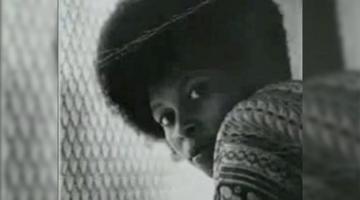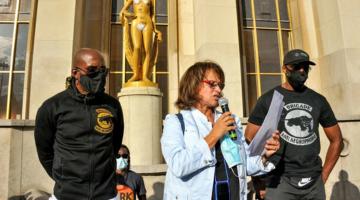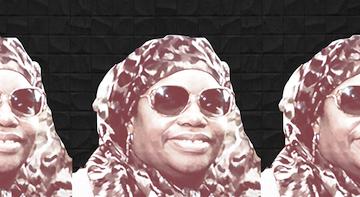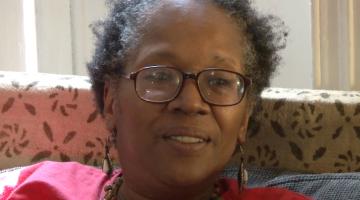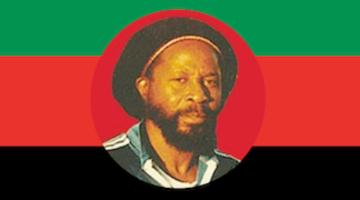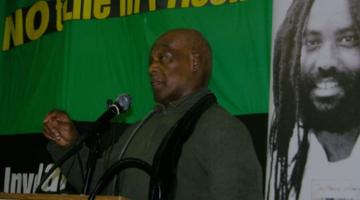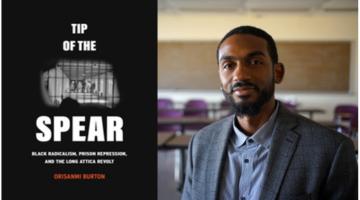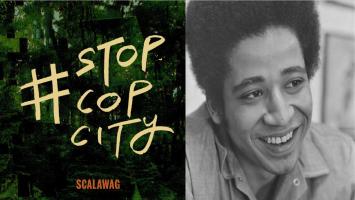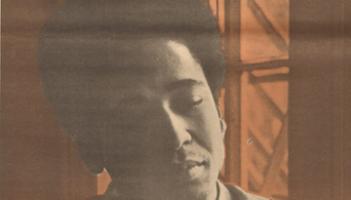Black August is an important month of political education, but it should not solely be about the past. The continued existence of a mass incarceration state targeting Black people demands continued agitation on behalf of the Pendleton 2 and many others.
Black August is a month of commemoration uplifting Black political prisoners and Black revolutionary struggle. Generally during this month we honor our revolutionary political prisoners such as George Jackson, Assata Shakur, Mutulu Shakur, Mumbai Abu Jamal, and various other political prisoners associated with the Black Panther/Black Liberation army and the overall revolutionary era of the late 60s and 70s. It is important to uplift the individuals and organizations associated with this era because this was a crucial period where the State made a persistent effort to eliminate leaders, disassemble our organizations and thereby sever us from our revolutionary history. This period was so deeply steeped in blood that veterans from this era are still surveilled and targeted by the State to this day.
A consequence of this repression causes some of us to understandably fixate on this era, and shortchange the stories of political prisoners who continued to put their lives on the line long after the State cracked down on our most iconic heroes. I myself was guilty of this oversight, and was ashamed to learn about political prisoners in my own state of Indiana. Not ashamed of Indiana (as the events I will describe later are far from unbelievable in such a racist state) but ashamed of myself because I commemorate Black August every year and had no clue. To become fixated on a specific era cedes ground to the state by making it seem like they already won. It makes it appear that revolutionary activity is a relic of the past; it is a time we honor but certainly do not engage in anymore. Therefore, this piece will highlight the case of the Pendleton 2 to remind us all that the struggle continues.
On February 1st, 1985 a Ku Klux Klan splinter gang of prison guards named the Sons of Light, sparked a prisoner rebellion at the Indiana State Reformatory (now Pendleton Correctional Facility) when they brutally beat a defenseless prisoner named Lincoln Love aka Lokmar Abdul-Wadood. Lokmar was an admired and well-respected jailhouse lawyer. Prior to the incident, Lokmar, in tandem with other inmates in his unit, was making demands against the unsanitary conditions of the prison including the denial of cleaning supplies. What occurred next was retaliation for such demands.
According to a lawsuit filed at the time, the Sons of Light, armed with illegal billy clubs, mace and tear gas, “maliciously held him [Lokmar] down and unmercifully stomped and kicked the inmate all over his body and hit the inmate upon and about his upper body and head with nightsticks.” As Lokmar was dragged faced down out of his cell, his fellow prisoners called for the assistance of John "Balagoon" Cole and Christopher “Naeem” Trotter who led a politicized group of fellow inmates called the Black Dragons.
At this point, Lokmar was beaten unconscious inside the captain’s office. The order from the guards was to "kill the son of b**ch." In an attempt to save Lokmar's life, the concerned prisoners peacefully demanded to see Lokmar but predictably the Sons of Light did not respond kindly to this demand either. As the Black Dragons attempted to push past the guards, a melee broke out. Armed with mace, billy clubs, hammers, and a shotgun, the Sons of Light began attacking the prisoners. As a result, the Black Dragons were forced to fend for their lives.
The Sons of Light tried to corner the Black dragons in the infirmary. To escape their inevitable death, they took several guards hostage at knifepoint as they rushed to occupy Cell House J. By putting the attention on themselves, they had successfully saved Lokmar's life and other prisoners in the infirmary who the white supremacist guards had told were next in line for the same fate as Lokmar.
Once in the cell house, Indiana State Police, Indiana Department of Corrections administrators, National Guard, and media arrived at the prison. Ultimately, all lives were spared. Prisoners issued a series of demands for humane conditions and respect. Inmates demanded that, “The prison establish a grievance committee, set minimum wages for inmates, allow prisoners to be politically active without intimidation or reprisals and end censorship of all letters, magazines and newspapers.” The rebellion ended peacefully after negotiations but the persecution did not.
The beating that sparked the rebellion was a boiling point, not an anomaly. The Sons of Light's racist imprint lives through the scars of the prisoners. As Naeem confessed,
"...people say, 'how do we know what was going on?' We know, because we been subjected to it, I had been subjected to it. I had five guards come in my cell while I was shackled and handcuffed. And one of ’em choked me out and said, 'Nigger we can kill you. You can’t never forget that.' "
Balagoon described being sent to Pendleton like a slave "going to Mississippi because they didn’t have no qualms about calling you ‘nigger.’" No freedom could be obtained under these conditions.
During the trial, the leaders of the rebellion, Balagoon, and Naeem, faced an all-white Madison County jury who the prosecution and judge openly fraternized with. ISR Guard Michael Richardson, who exposed the Sons of Light in a deposition, was questioned by the defense about the violent prison but the judge would not allow for any questions on these matters to go forward thereby granting every objection to the prosecution.
Consequently, Balagoon and Naeem were sentenced to 84 and 142 years in prison. Balagoon was convicted on four charges of criminal confinement. Naeem was convicted for attempted murder, criminal confinement, rioting, and bodily harm. Since their conviction, Balagoon and Naeem illegally spent thirty-two and twenty years in solitary confinement respectively. At the time of the rebellion, Balagoon only had three and half years left on his original sentence while Naeem had even less time with only three months remaining. Nevertheless, they sacrificed their freedom to save a human life. As a result, they are now the Pendleton 2—political prisoners punished not only for the day of the rebellion but marked as examples of what happens to prisoners when they actively resist the state's racist violence.
How we support political prisoners is a barometer of how far we are willing to go on the battlefield. If we cannot even gather ourselves to help free those who put their lives on the line for us then we certainly are not in a position to use words such as liberation or revolution. The Pendleton 2 need our help. Both gentlemen are now senior citizens with deteriorating health in a prison system rampant with medical neglect (Lokmar, the fellow inmate they saved, died inside a prison in 2020 due to Covid-19). The state of Indiana has blocked nearly every avenue for them to receive a fair trial. Please sign the letters to the governor and Madison County's prosecution office for clemency and a sentence modification. Go to our website to get involved with the defense committee. Free the Pendleton 2!
Too Black is a poet, host of the Black Myths Podcast on Black Power Media, member of Black Alliance For Peace, communications coordinator for the Defense Committee to Free the Pendleton 2, co-director of the documentary film The Pendleton 2: They Stood Up and author of the forthcoming book Laundering Black Rage. He is based in Indianapolis, IN and can be reached at tooblack8808@gmail.com or @too_black_ on Twitter.

